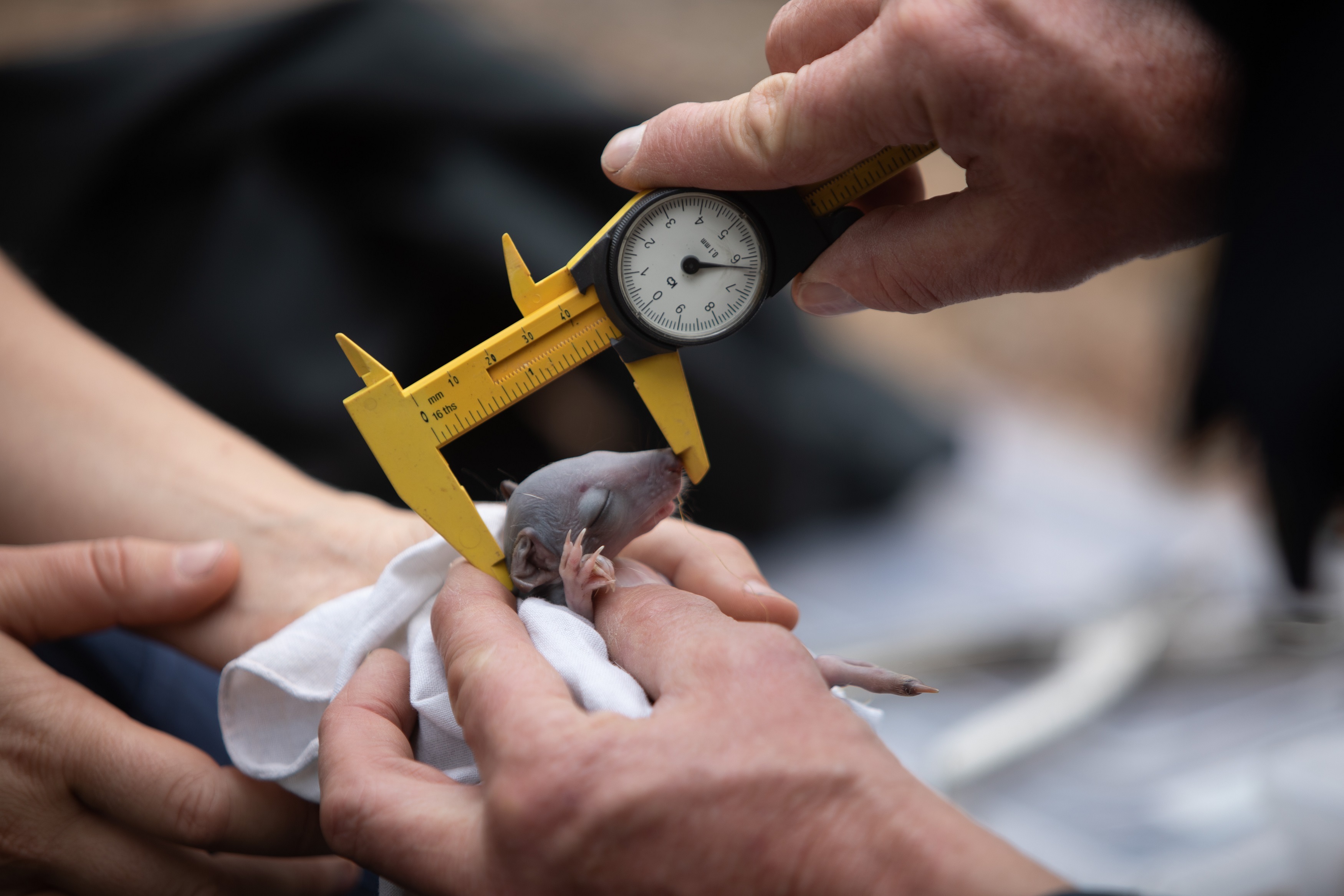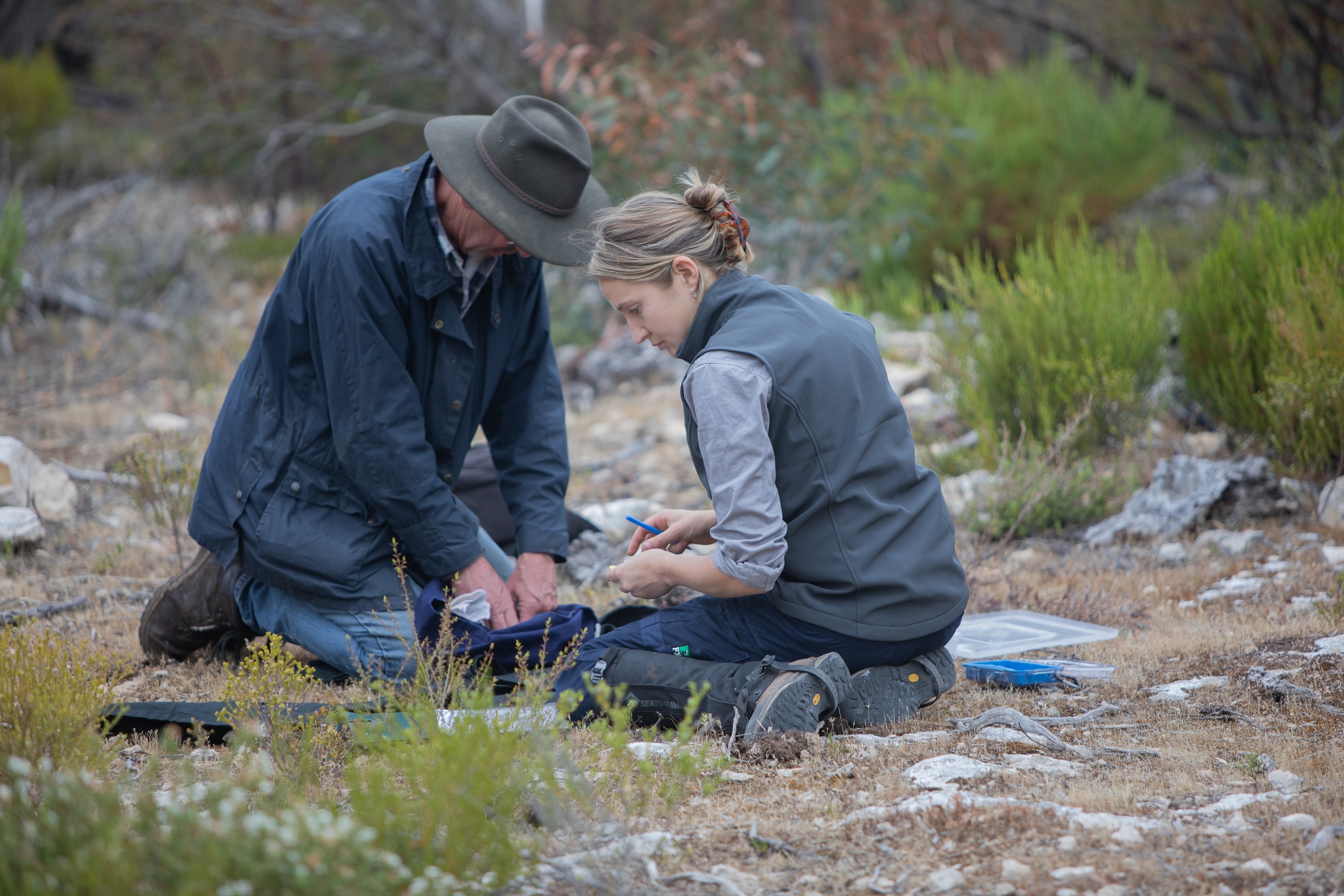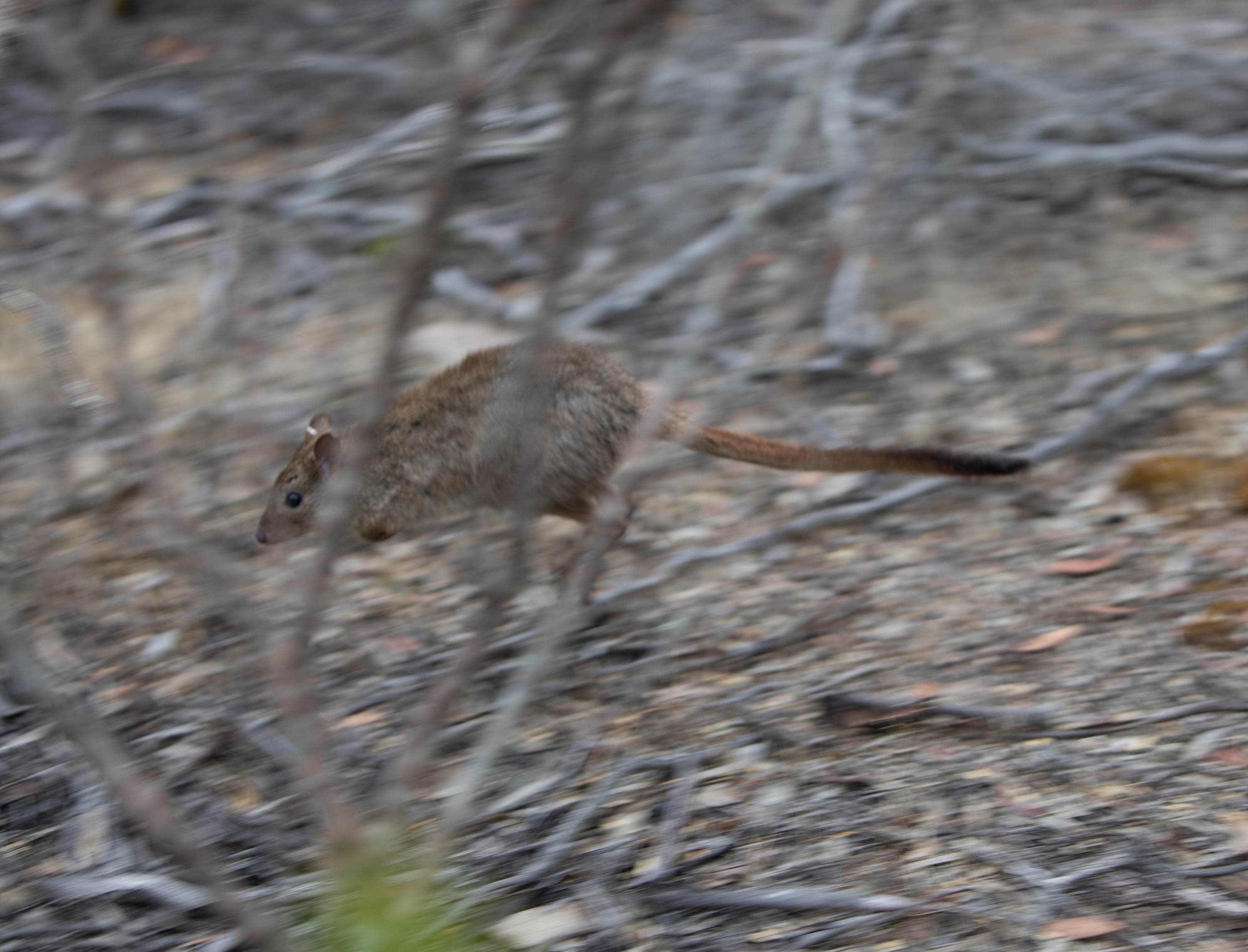Posted on: 20th December 2023
Latest monitoring of the brush-tailed bettongs – known as yalgiri to the local Narungga people – found 95% of the females checked had pouch young. The critically endangered marsupials were also found across three quarters of the national park, an area nearly twice the size of Adelaide’s CBD.
The monitoring team, led by the Northern and Yorke Landscape Board, captured and released a total of 143 yalgiri, with 82 born on southern Yorke Peninsula.
Returning yalgiri is part of Marna Banggara, an ambitious project to restore lost native wildlife to southern Yorke Peninsula. They were locally-extinct due to habitat destruction and the spread of introduced predators, including foxes and feral cats.
The project is jointly funded through the Northern and Yorke Landscape Board, the Australian Government, the South Australian National Parks and Wildlife Service, WWF-Australia, and Foundation for National Parks & Wildlife, in partnership with the Narungga Nation Aboriginal Corporation.

Northern and Yorke Landscape Board Project Manager Derek Sandow said more than 190 yalgiri have been released in the park since 2021, with the majority flying more than 2,000 kilometres from Western Australia, while another 2 contingents arrived from nearby Wedge Island.
“Four weeks of yalgi monitoring in November and December has revealed that the population continues to grow,” he said. “They’re travelling vast distances, especially for a small animal. Some have travelled 5km from their release site. In fact, they’re getting close to a piece of bush that links to Warrenben Conservation Park.
“If we can keep fox and feral cat numbers down, we’re hopeful that within a few years, they will move through this native vegetation corridor into Warrenben, which is about 10km away.”
Monarto Safari Park’s Assistant Curator of Natives and Primates Tom Hurley said one of the most exciting parts of the monitoring exercise was the amount of joeys in pouch. “It proves that the population is breeding and thriving,” he said. Zoos SA has led the reintroduction of yalgiri to southern Yorke Peninsula since the first translocation in 2021.
Survival of the original animals released is also a strong factor, with nearly half of the yalgiri captured coming from Western Australia and Wedge Island.

Yalgiri have an important role to play in the Marna Banggara project, which aims to restore lost ecological processes and reinvigorate the southern Yorke Peninsula landscape. Known as soil engineers, one yalgi can turn over between 2 and 6 tonnes of soil every year, effectively composting leaf litter and providing conditions to stimulate new plant growth.
National Parks and Wildlife Service District Ranger April McInerney said yalgiri had already made a difference in areas of the park historically used for farming and mining.
“The evidence that we’ve seen of the yalgiri across the park is their physical diggings,” she said. “With the pastoral scars, they’ve dug up the earth and allowed more seeds and water to come in which is actually rehabilitating those areas.”
Visitors to the park can see these diggings, especially near historic Inneston and may even be lucky enough to spot a yalgi at dusk or on a night walk.

An Adventure Quest competition running throughout the summer school holidays will also help park visitors learn more about yalgiri. Pick up the Adventure Quest activity sheet at the Visitor Information Centre or download it here.
Answer 5 questions about yalgiri by visiting 5 locations in the park to uncover a secret word. And as a bonus, all participants can enter into a draw for a chance to win a fantastic family pass to Adelaide Zoo.
Other partners actively involved in developing and delivering Marna Banggara include Regional Development Australia, South Australian Tourism Commission, Zoos SA, FAUNA Research Alliance, BirdLife Australia, Nature Conservation Society of SA, Primary Producers SA, Primary Industries and Regions SA, Conservation Volunteers Australia, Legatus Group, Yorke Peninsula Council, Yorke Peninsula Tourism and Scientific Expedition Group.
Archive
2026
2024
July
June
2023
- Fantastic (mallee)fowl facts
- Malleefowl surprise for volunteers as count remains stable on previous year
- The bell tolls for native species with domestic cat spotted roaming
- Baby boom update from Marna Banggara
December
November
September
July
June
May
January
2022
- Rewilding reptiles: Using lizards to restore landscapes in South Australia
- Baby boom for first bettongs on Yorke Peninsula in over 100 years
December
November
July
May
March
2021
- Celebrating the return of brush-tailed bettongs to Yorke Peninsula
- Brush-tailed bettongs back on mainland South Australia after disappearing more than 100 years ago
October
September
August
July
April
2020
- Brush-tailed Bettongs: The habitat they like to call home
- The elusive Western Whipbird on song in Warrenben